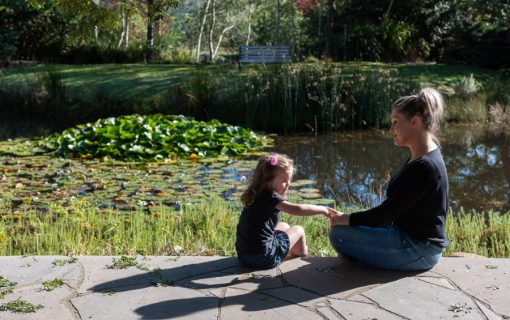Everyone Deserves a Funeral: Why direct cremation may not be a good idea
Everyone Deserves a Funeral: Why direct cremation may not be a good idea
By Peter Erceg – eziFunerals
Direct cremations have experienced a surge in popularity in Australia, since the Covid pandemic and the cost-of-living crisis.
A direct cremation is a no service, unattended cremation, where the deceased is taken alone (or with others) to the crematorium and the ashes returned to the family later.
Direct cremations are frequently advertised as no-fuss, no-frills, low cost options for individuals who cannot afford or do not want a funeral. Yet this does not convey the reality of someone’s death for loved one’s left behind.
According to Doug Manning, international grief expert and author of The Funeral: A Chance to Touch, a Chance to Serve, a Chance to Heal, “denial is always easier than reality” in the funeral process. In his book, he reinforces that denial does not make it easier for the family to walk through the grieving process. Without a meaningful funeral service, the family will face more difficulty in the days to follow. Manning is convinced that “the funeral is a vital tool in the process of grief, and if done right, is vital to the healing of broken hearts.”
Peter Erceg, Owner and Founder of funeral planning website, eziFunerals echo’s Manning’s assertions about the important role of the funeral service in the healing process. Erceg, says that the funeral has intrinsic value because it creates a moment in our busy lives to pause and reflect on the meaning that a person’s life has had for us.
In recent years, eziFunerals have witnessed a rise in inquiries for direct cremation as the answer to tackling funeral poverty in Australia. It is worrying to see direct cremations positioned by some companies, as a “quick fix” for families who are struggling to deal with the cost-of-living crisis. However, they do not consider the long-term emotional consequences of losing the opportunity to properly grieve a loved one.
Everyone deserves a funeral because every life is valuable, every life deserves recognition, every life deserves that ‘pause’ in our busy day to celebrate a persons life and contribution,” Erceg explains.
The following case study by the University of Aberdeen, illustrates the practical and ethical concerns that can arise with direct cremation.
Jill’s Funeral
A daughter’s perspective
Maxine lost her Mum, Jill, a week ago when Jill had a massive heart attack. It was a big shock, but Maxine knew that Jill had made things easier for her by arranging all her affairs after a cancer scare a few years back.
Jill had told Maxine where her important documents were and had been very clear that she wanted her funeral to be a direct cremation. They had talked about it after Jill saw an ad in the paper. “Direct cremation please, Maxine. No fuss, and none of my money wasted on a fancy coffin or a horse and carriage. I’d far rather you had a bit more”. Maxine reflected that that was so typical of her Mum: not looking to have frills, always thinking of others. Maxine’s working hours had been cut recently, and she had started to worry about her bill payments, so having Mum’s blessing to go with a less expensive funeral option was no bad thing.
The person Maxine spoke to at the Funeral Director’s had said that they could include an option for the family to go and say goodbye to Jill in their chapel before the direct cremation. It wasn’t something Maxine would have thought of doing, but she was reassured that if the company staff were inviting the family to go and see Jill, they were going to take care with her.
Maxine thought she could host a small gathering and quietly scatter Jill’s ashes in the park where both parents had taken her as a child, and where Mum had enjoyed walking her old dog even up to the day before she died. Maxine liked the idea that Jill would get to rest somewhere she had loved, and that Maxine would be able to visit and think of her from time to time.
A brother’s perspective
Dave wished Maxine had listened to him, rather than putting her foot down and saying that Jill had wanted a direct cremation, so it was going to be a direct cremation. Dave understood that his sister Jill never wanted a fuss and was very careful with her money. But doesn’t everyone deserve at least a little bit of ceremony when they pass? And he had read horror stories about what happens with these direct cremations. They had a reputation for being soulless affairs, with people dumped in coffins and then bumped along to a crematorium in a transit van without so much as a thought.
Dave couldn’t help feeling that it wasn’t right to send someone into a crematorium alone. He had never thought about visiting a dead relative in their coffin before the funeral ceremony, though, and when Maxine mentioned that the Funeral Director had offered that, he realised people were often left alone in their coffins before the day of their burial or cremation.
Dave wasn’t only bothered about Jill. Although he wouldn’t say he liked funerals, he had always found that they gave him a good feeling of ending relationships well. He had told Maxine he wasn’t asking for a big service for Jill, but as her brother he wanted to gather with what small family he had left to send her off, and to share a drink and a bit of food afterwards.
Maxine said they could get together to scatter Jill’s ashes – maybe on what would have been Jill’s 70th birthday – and have a meal at the local pub-restaurant afterwards. But that would be a couple of months away, and Dave thought that surely the moment would have passed then? It was now that he wanted to be among other people who knew his sister.
Funeral directors have a responsibility to educate consumers about the various options available to them, so they can make informed decisions for themselves or on behalf of a loved one. Transparency, trust and compassion are essential factors in this process, – regardless of cost or business model. Doing so affords people the choice they deserve and the chance to say goodbye in a way that feels meaningful and right for them.
Manning writes in his book The Funeral, “more and more funeral directors are providing funerals that are personalised and reflect the personality and lifestyle of the deceased. When funerals are made into meaningful experiences people will want to have funerals. And when they do, they experience the beginning of healing.”
About eziFunerals
eziFunerals supports individuals and families cope with end of life decisions, death and funerals. We are an independent, Australian-owned and operated company. We are not part of any other funeral company. For more information visit www.ezifunerals.com.au.

